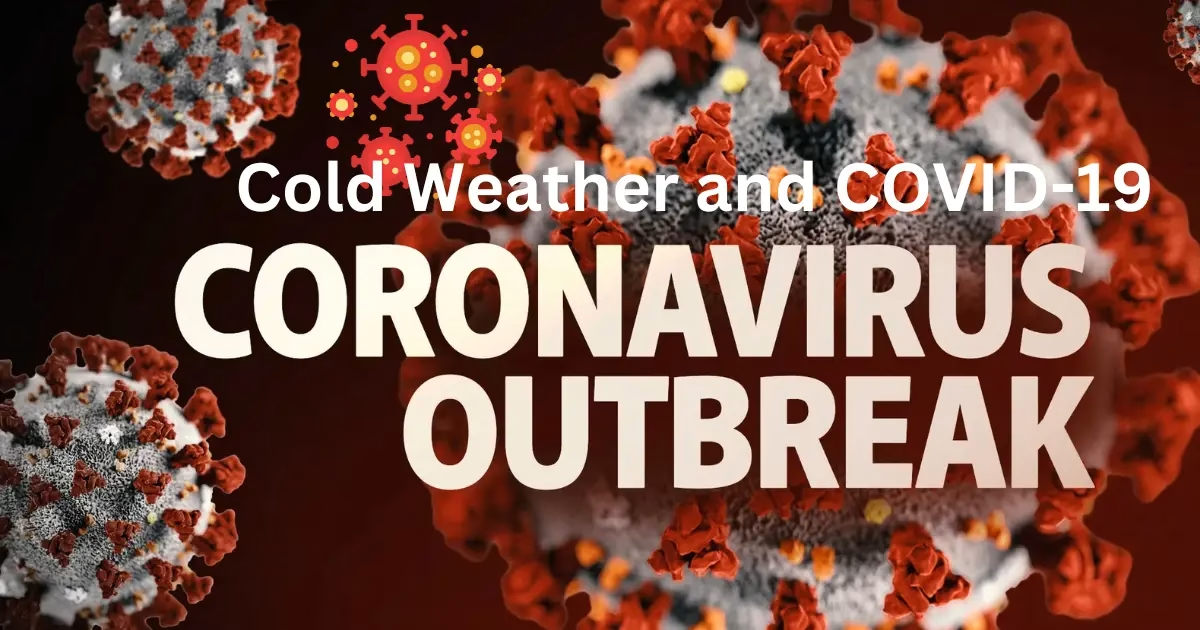Cold Weather and COVID-19 When the bitter cold sets in, many people have questions about how low temperatures affect COVID-19 transmission. It is crucial to understand all aspects of the virus in order to have proper protection measures against the virus in colder climates

The Basics of Cold Weather and COVID-19
COVID-19 is a disease that originated from the SARS-CoV-2 virus and mainly transmits through droplets. These droplets spread through the air when a TV or radio host talks, coughs, sneezes, or maybe just breathes heavily. He added that the virus can also spread through contact with infected surfaces and then touching the face.
What’s the COVID-19 risk linked to cold temperatures?
Cold weather does not directly cause COVID-19, but it can create conditions that facilitate its spread:
Indoor Gatherings: During the known cold months, people spend most of their time, especially in the evening, inside their houses. It stands to logic that open spaces with small windows and closed doors present more chances for the virus to spread.
Dry Air: This weather most of the time results in low humidity both in and around our homes. They found that dry air causes more stress to the protective mucous membranes in the respiratory system than moist air, and this in one way exposes the body to the virus.
Virus Survival: Research has it that this coronavirus can stay active for longer times in low temperatures and low humidity. This greatly enhances the possibility of surface transmission.

Seasonal Immune Response: Cold weather causes the body to produce more stress hormones and may slow down the immune function, decreasing the body’s ability to fight off infections.
Connection with other respiratory disorders
The common flu season starts in the winter season. COVID-19 and the flu are alike in many ways, including their signs, how they spread, and their periods of prevalence, and therefore it is not shocking that COVID-19’s cases also surge. However, COVID-19 has its own different patterns of transmission that are still under research.
Pregnancy and Cold Climate Protection
To reduce the risk of COVID-19 during colder months, consider the following precautions:
Ventilate Indoor Spaces: Freshen up the air in your house or office by using a window or use airborne cleaners that circulate fresh air.
Wear Masks: Maintain wearing face masks, especially where people are many or in confined, enclosed spaces with poor air circulation.
Practice good hygiene: wear a face mask, practice regular hand washing, and avoid touching your face and other surfaces regularly without washing hands.
Stay Physically Active: You can also build up your immunity if you exercise because this will help you to combat infections more effectively.
Get Vaccinated: Learn more about COVID-19 vaccinations and boosters as a way of minimizing the danger of serious sickness resulting from the virus.
Monitor Symptoms: Anyone experiencing these signs, such as fever, any cough, or generalized weakness, must test for the virus and self-quarantine.

List of FAQS
Q: Does cold weather account for COVID-19, or does COVID-19 only occur during a specific extreme climate condition?
A: No, the cold weather is not the cause of COVID-19, though the scientists are trying to put forward a theory that the virus will become active in the summer. But it does make conditions that may exacerbate the risks associated with the viruses; for instance, more people are likely to be indoors, resulting in less air circulation.
Q: Does the use of a mask assist in cold weather?
Indeed, when people wear a mask, they do not release or breathe in viral particles produced when interacting with others in closed and crowded spaces or spaces with low air circulation.
Q: Hi everyone, What are some signs that may help me distinguish COVID 19 from ordinary flu?
A: However, some symptoms may be common with other diseases, such as flu like cough, sore throat, etc.; however, COVID-19 includes features such as fever, loss of taste or smell, and extreme fatigue. Thus, the diagnosis of COVID-19 is most accurately provided in the laboratory through a test.
Q: Does harsh weather put your body to lower immunity?
A: Cold temperatures can reduce certain, limited aspects of immunity, but stress, poor sleep, etc. are stronger factors.
Q: Where should I go if I start getting symptoms in winter?
A: If you get a fever, cough, or feel tired, stay home, consider getting a COVID-19 test, and adhere to local protocols.
References
- Centers for Disease Control and Prevention (CDC). “COVID-19: How It Spreads.” https://www.cdc.gov
- World Health Organization (WHO). “Coronavirus Disease (COVID-19) Advice for the Public.” https://www.who.int
- Harvard Health Publishing. “COVID-19 Basics.” https://www.health.harvard.edu
- National Institutes of Health (NIH). “The Impact of Seasonal Changes on COVID-19.” https://www.nih.gov
